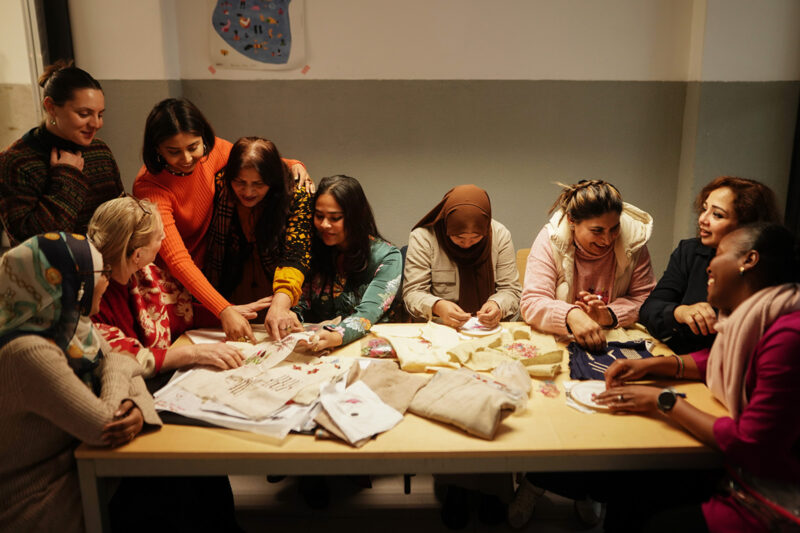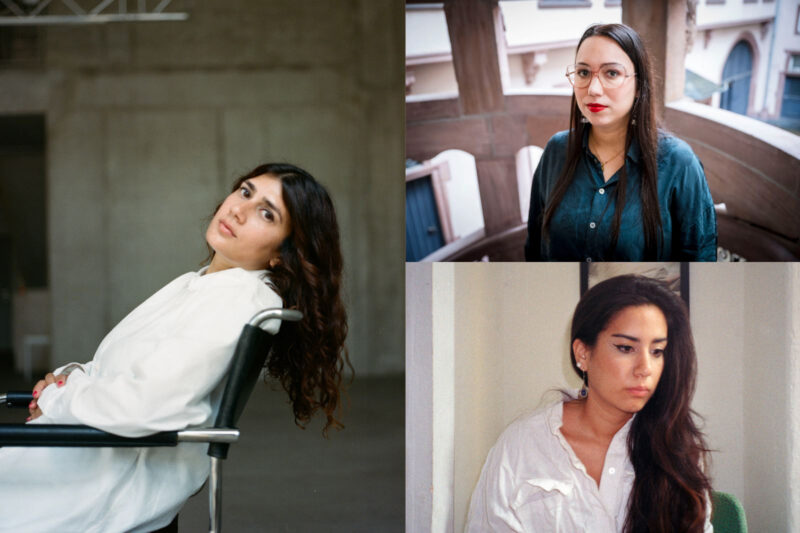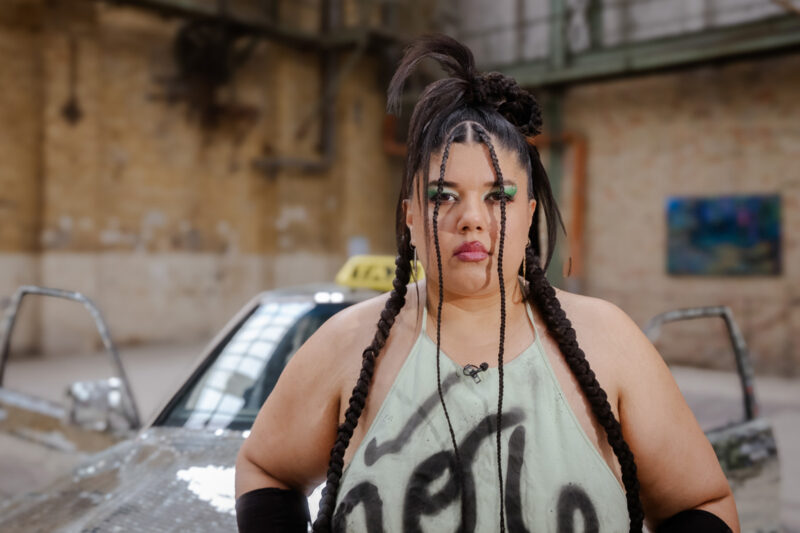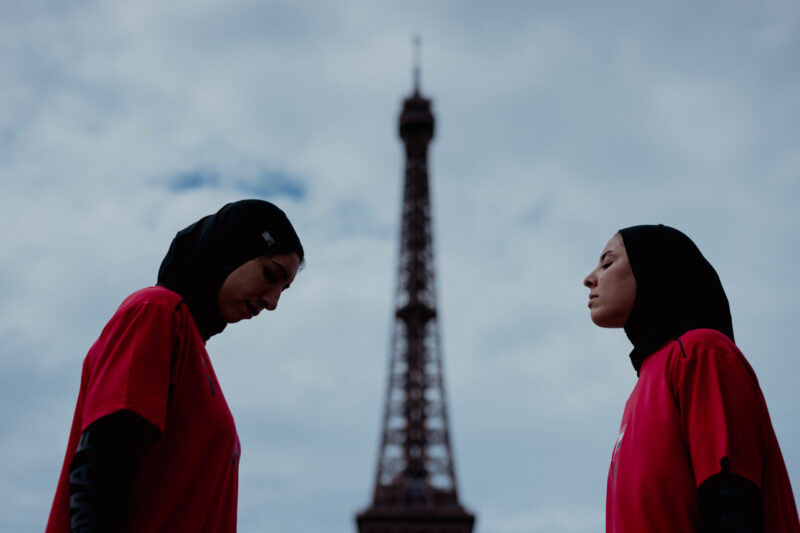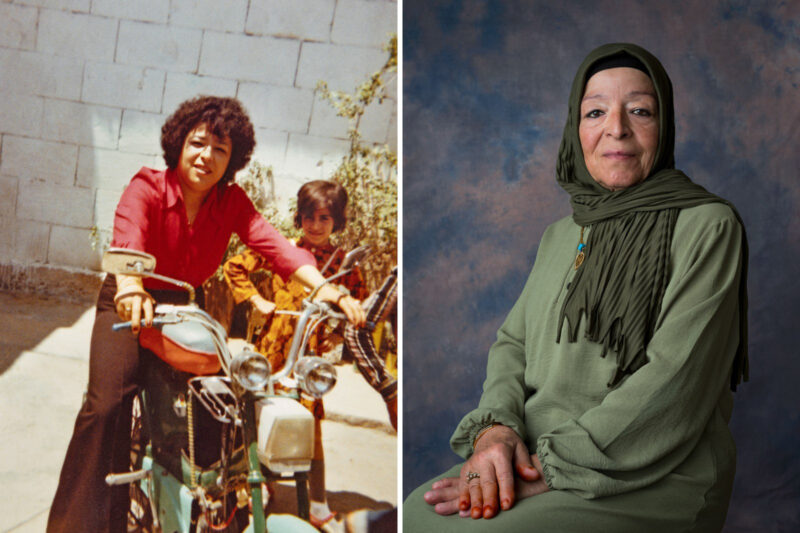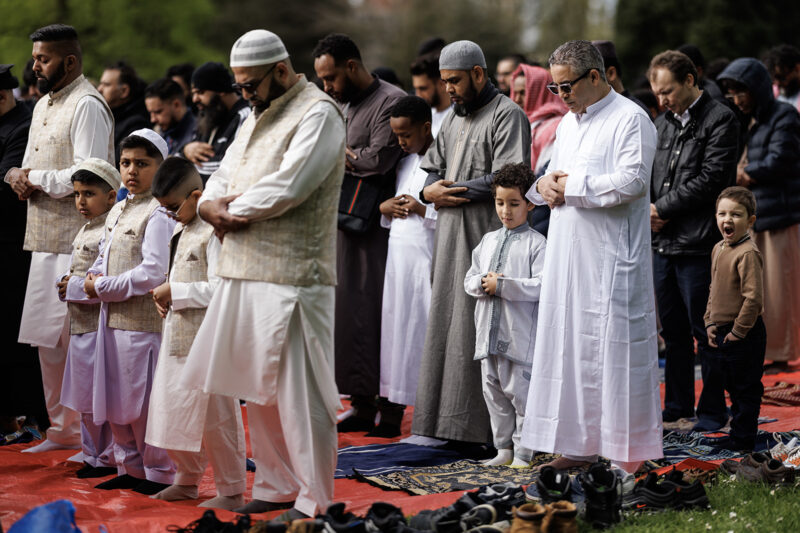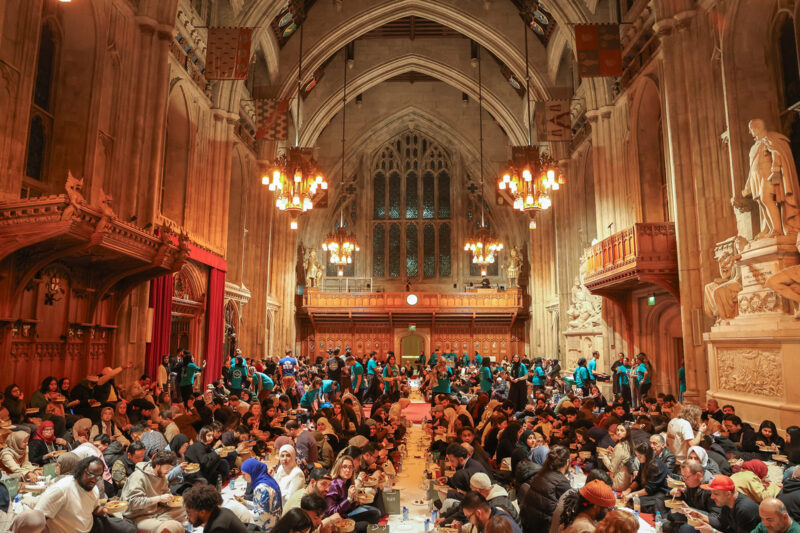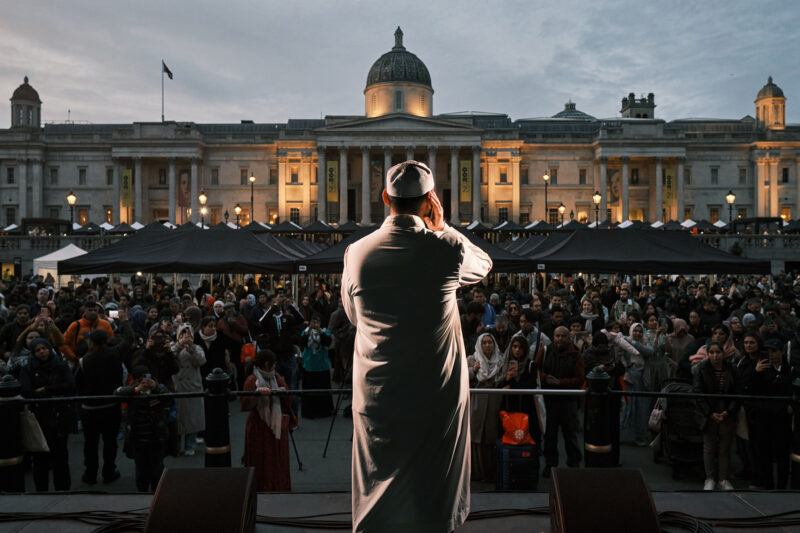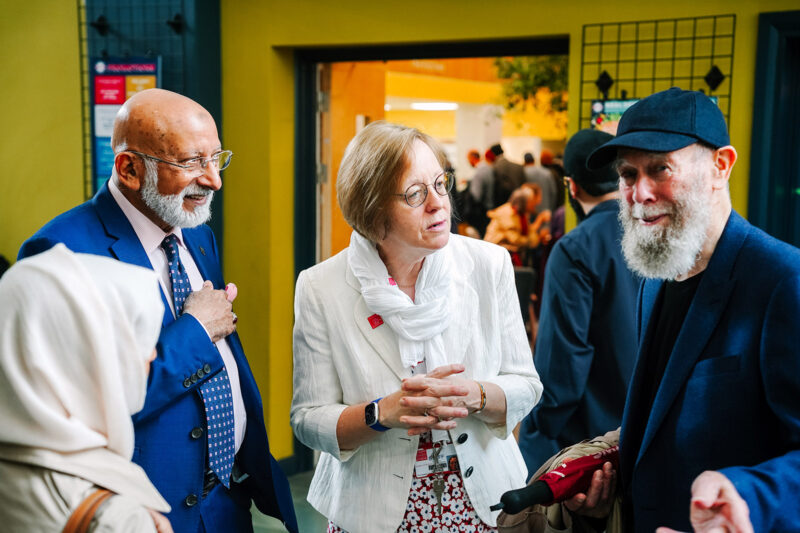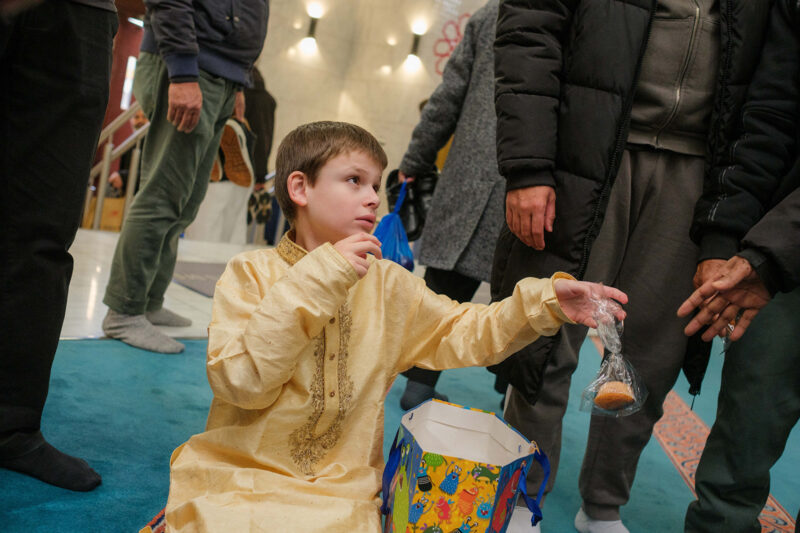The Nordic imama leading the fight for gender equality
Sherin Khankan’s all-female mosque in Copenhagen has drawn support from a range of faiths — and some conservative criticism — with its campaign to help Muslim women seeking divorces
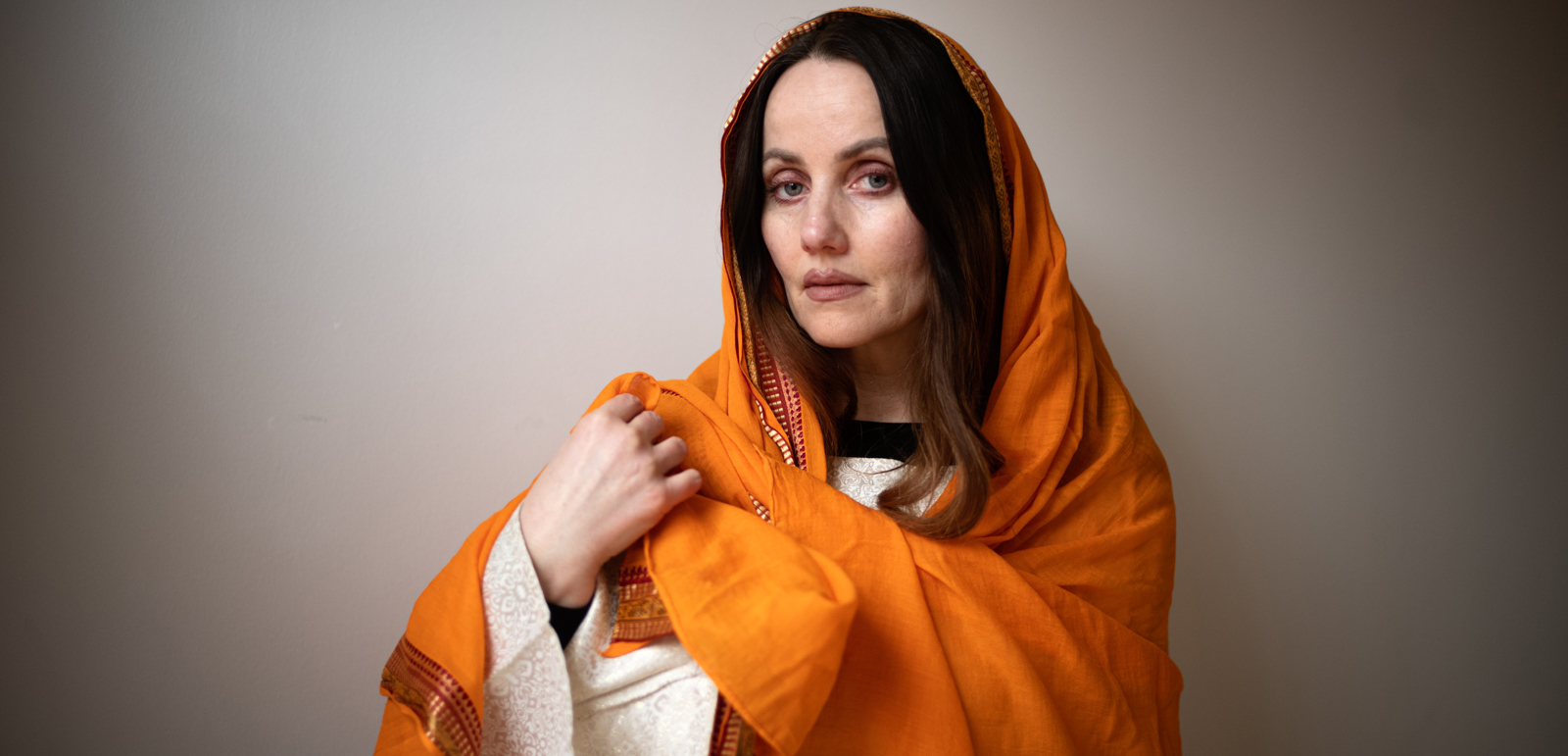
It was a busy Friday for Sherin Khankan. At her office on an unassuming side street not far from Copenhagen town hall, she had performed four divorces by 4pm. She also found out that she had been named on the list of most influential women of the year in neighbouring Sweden.
Khankan has been busier than ever since featuring in a Swedish TV documentary, Divorce in Allah’s Name, on public broadcaster SVT last year. Word has spread about Maryam, the female-led, feminist mosque she founded in 2016, where she helps empower Muslim women to lead the lives they want, performs interfaith marriages and Islamic divorces, and leads prayers for worshippers. As the first female imam, or imama, in the Nordic countries, Khankan is a pioneer, but she isn’t content with representation. She wants reform.
She is one of a small but growing number of female imams leading liberal, feminist mosques across Europe and questioning some of the established norms of conservative Islam, which afford women fewer rights than men. Several of these women’s mosques, including Berlin’s Ibn-Ruschd Goethe Mosque, led by Seyran Ates, have had to change their location in response to death threats from religious extremists.
“We have three main objectives: female sovereignty within religious institutions, Islamic pluralism and a separation between religion and politics. Of course we’ve had conflicts. When you change the status quo, you meet with opposition,” Khankan explained from behind a large wooden table in her mosque.
The way that most imams adjudicate divorce, a wife needs her husband’s consent to end a marriage. Sometimes — particularly in controlling or abusive relationships — the husband may not go along with it. While their former partners are left in limbo, these men, citing interpretations of Islamic law that allow men to have multiple wives, are free to remarry and even have children with new wives.
Khankan’s fourth divorce on this particular Friday marked the 89th she has performed — 65 since 21 January this year, when the documentary was shown on Swedish TV. For her, the mosque is a centre of feminist politics as well as spirituality.
“Our activism is going Nordic,” she said.
Since the film’s release, Muslim women from across Scandinavia have been getting in touch with Khankan, desperate for a khula (a divorce initiated by a wife) having been denied by traditional imams. In response to the increased demand, Khankan and her colleagues — she now has two other imamas volunteering at the mosque — developed a campaign called Til døden os skiller (Till Death do Us Part), which provides divorce contracts written in English, Danish and Arabic. Women are provided with pre-prepared forms to fill in, explaining why they want to end their marriage, including descriptions of abuse, or, in shorter versions, providing just their names.
“Many women choose the short version because they are afraid of the consequences if they name their husband as an abuser. It’s a reformation of the Islamic divorce practice in Denmark,” Khankan explained.
Born in Denmark to a Syrian Muslim refugee father and a Finnish Christian mother, Khankan has multiple degrees and has authored publications in the sociology of religion and psychology. Her mission within Islam dates back to August 2001, when she returned from a trip to Syria. Here she studied theology and fully embraced her faith. Immediately on her return to Copenhagen, she founded the first Danish Muslim organisation with a female leadership. She also wrote a manifesto calling for female khutbah preachers in mosques, but didn’t dare to dream of calling for female imams. “It was too controversial,” she said.
Khankan came to believe that certain conservative practices around divorce were unfair cultural throwbacks inconsistent with Islamic jurisprudence.
“It’s a man-made patriarchal practice. To hold a woman against her will in a marriage is psychological violence. It’s criminal. And you are contradicting human rights and Islamic rights,” she explained.
Khankan points to the Surah al-Nisa, which explicitly forbids forcing women to marry against their will or making them return part of their dowry in return for a divorce — something she sees often in cases where husbands are obstructing a divorce. She will often try to speak to the men, sometimes at length, to understand their perspectives and validate their feelings. She recalls one man refusing to accept her authority to perform a divorce without his consent. She explained matter-of-factly: “We changed the status quo and reformed the process. It is possible. We did it.” In the end, he agreed.
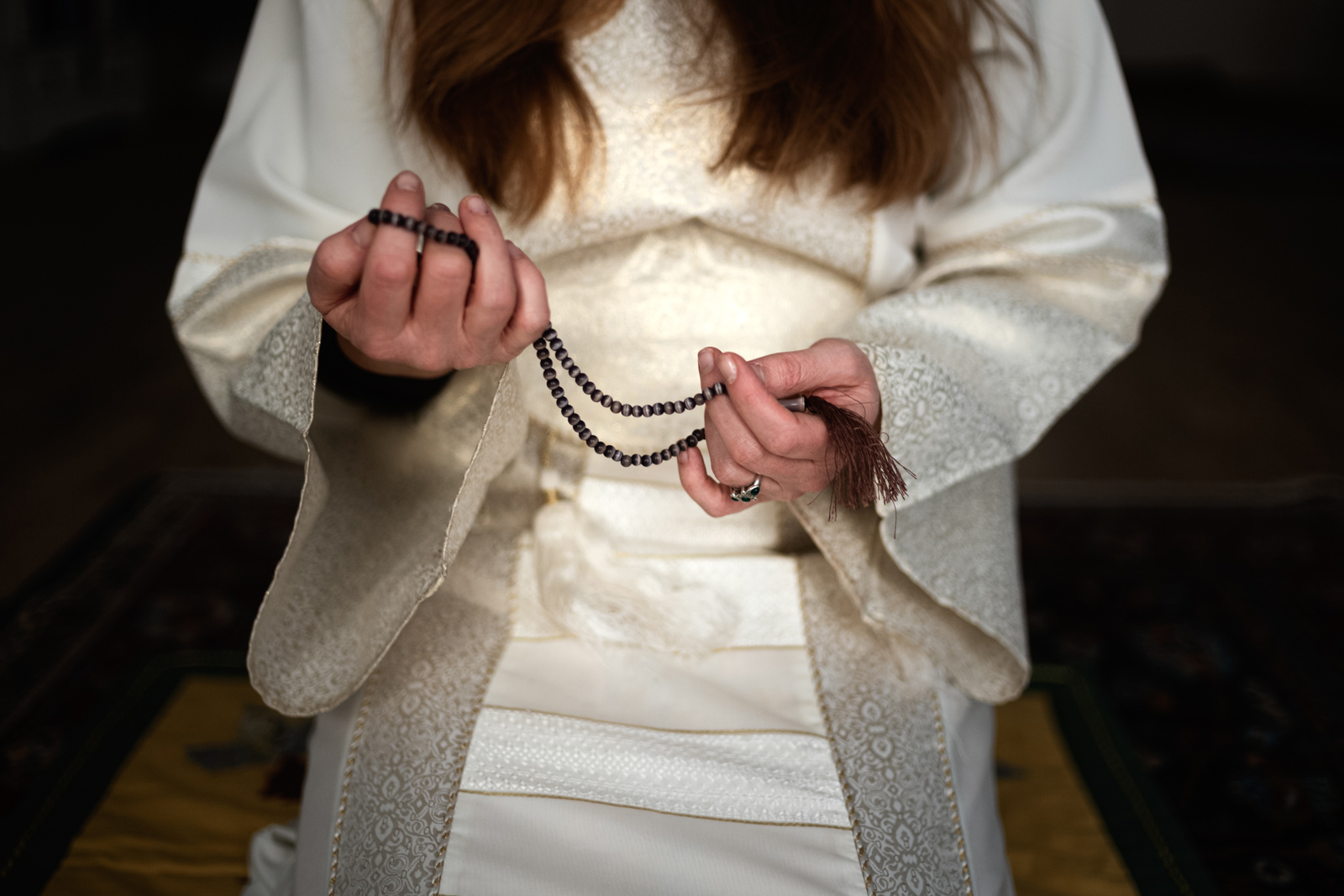
According to some interpretations of Islam, men can divorce women by simply repeating the word “talaaq” — I divorce you — whereas women are not allowed to end their marriages, even in cases of abuse and infidelity. The Maryam mosque, however, insists it is on safe theological ground helping these women, and has even been supported by some traditional imams who voiced support for their efforts on the Muslim podcast Shariah Manifestet.
“Slowly something is starting to happen,” Khankan said. “Our aim is to enter all the mosque communities in Denmark, including the big ones, and persuade them to make a standardised marriage contract, giving women the right to divorce.”
She also wants to encourage mosques to prohibit polygamy, and introduce paragraphs in mosques’ marriage contracts that make Islamic divorce happen automatically when someone gets a civil divorce, without the need for a separate Islamic ceremony. “Our aim is to make the imams unnecessary,” she said.
In all the divorce cases Khankan has officiated at, there has been “severe violence” and in many cases this gets worse after the couple separates. “Maybe your ex-partner will threaten to kill you or use the children as a weapon against you,” she said.
That Friday, half of the women who wanted divorces came in person, but the other half were in crisis centres for victims of domestic violence, so had to have their divorce performed online. Khankan points out that domestic violence is far from an exclusively Muslim problem: 12 women are killed a year in Denmark, mostly by ethnic Danes in domestic violence cases. She refers to this as “white man’s honour killings”.
Khankan has had a lot of experience with violence. Alongside her work as an imam, on four days a week she runs Exitcirklen, an NGO with 80 volunteers that she founded to help victims of violence. There, she hosts group therapy, with both men and women sitting in a circle and talking about their experiences.
“I believe that we can heal in communities,” she said.
Khankan’s work around divorce has had a largely positive reception within and outside Denmark’s Islamic community, with invitations to speak at Denmark’s parliament, the Folketing. It’s her performing of interfaith marriages for Muslim women that is proving much more controversial.
“In the Qur’an it is stated that the man can marry Jews or Christians, people of the book, but it is not stated that women can’t,” she said.
Khankan argues that because men and women were created equal, the same rules should apply to both genders. She acknowledges that Denmark’s social liberalism has played a role in how she sees the world, but also points out that Tunisia introduced interfaith marriages in 2018, at around the same time that her mosque did. She speaks proudly about how couples have come from as far as Egypt and the UK to be married by her. But this particular practice has come at a huge personal cost.
Khankan had been married for 13 years, and has four children, but didn’t tell her husband that she was officiating at interfaith marriages.
“In the beginning we did it undercover. Nobody knew. Not my husband, not my father, not anyone,” she said. “When my husband found out he gave me an ultimatum. I had to choose between the Maryam mosque or my family. To him it was a deal-breaker. It was a theological divorce.”
Khankan chose the mosque over her marriage, but doesn’t regret the decision. For her, she was securing her daughters’ freedom to marry whomever they choose.
“It’s what I’m most proud of,” she said. “I made it possible for my girls to choose their partner. Interfaith marriage is the future.”
The Maryam mosque’s female leadership and support of interfaith marriages have made the institution controversial among both Danish Muslims and the far right. Denmark is not known for its tolerance of Islam. The extreme migration policies adopted by its Social Democratic government have seen migrants and refugees sent to uninhabited islands. Copies of the Qur’an were recently burned by the far-right populist Rasmus Paludan.
Khankan has been also branded an Islamist by the independent MP Naser Khader. In the current climate, where this word is practically synonymous with dangerous extremism, she took Khader to court for defamation (he had referred to her “black Islamist past”). The judge ruled that this was defamatory — but her accuser’s speech was protected by parliamentary privilege. Now, as well as reforming Islam, she wants to reform her home country’s perceptions of the religion.
Khankan’s path to reform has at some points been lonely, with one of her co-Imams resigning after a backlash against interfaith marriage, which was documented in the 2019 documentary The Reformist. However, she points to other female Muslim leaders such as Amina Wadud in the US and Halima Krausen in Germany as inspirations for resilience. “Women are inspiring women. It’s so amazing.”
A four-times published author — she has written a memoir titled Women Are the Future of Islam and several Muslim children’s books — Khankan is a can-do leader who prefers to talk about the support she has received. She is confident that in the future she will be seen as a reformist and not a radical: she points to a number of mosques in Europe that have already followed her example for both marriages and divorces.
“I’m very proud of the reform we’ve made and my aim and ambition is to transfer our Danish model for Islamic divorce to other European countries,” she said. “If we can do it here we can do it everywhere.”
She recalls when the Maryam mosque was visited by the Indonesian Grand Imam of the third-largest mosque in the world. He recalled the words of the Sufi poet and philosopher Ibn Arabi: “The perfect man is a woman.” It is Khankan’s favourite quotation.
 Newsletter
Newsletter


